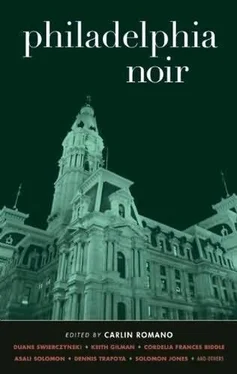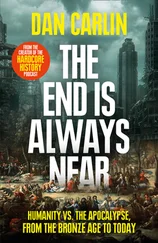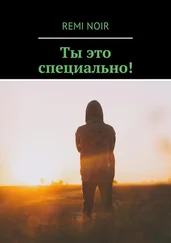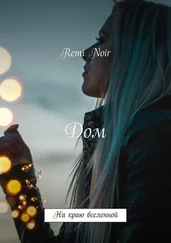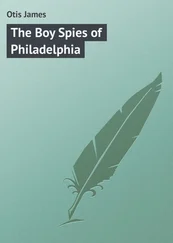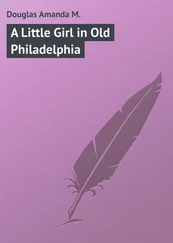I raised the glass of whiskey and held it up in front of me. Johnny did the same. We nodded and drank. I wished him a happy birthday and went out the door with the bell ringing in my head.

I took 27th Street through the heart of Point Breeze and onto Grays Ferry Avenue and then onto 30th, where I pulled into the lot at St. Gabe’s. There was a church, a monastery, and a school, all made of redbrick and jagged gray stone, the three buildings surrounding a parking lot and a deserted playground. At night, the shadows from the old church spread across the lot and the nuns would creep to their second-story windows and peer out at the sun sliding behind the gray skyline, and in the darkness it wasn’t unusual to see a car pull in and park at the far end of the lot. St. Gabriel’s seemed to be looking down on the entire city of Philadelphia with a weary eye.
Millie Price had asked me to meet her there at ten. I was early.
I looked across the lot at the flimsy wooden backboard and the rusty rim clinging to it. The metal pole swayed in the cold wind. The concrete that held it in the ground had long since turned to dust and been blown away. A wall of chain link made the whole place look like an old prison, where inmates might have come out into the cold air once a day and stared at the broken basket and laughed like crows at a rankled scarecrow. And the crooked weather vane sitting at the top of the arched steeple of St. Gabe’s would point down at them and laugh back.
The diocese had planted trees along a narrow strip of lawn bordering the playground. Thin dogwoods that bloomed in spring, the delicate white flowers emerging shyly for the first few years and then going into a kind of permanent hibernation, the dried bark peeling away and exposing the speckled, wind-blown skin beneath. They stood like that year after year, leafless and gray, their thin, petrified branches frozen in place.
I’d pulled my ten-year-old Jeep Cherokee into the lot. It was navy-blue, with an exhaust system that made it sound like a tank. The front wheels grinded as I circled toward the back. It had been making that same noise for two months. I’d taken it to Eddie’s garage earlier that day and he’d told me it needed bearings on both sides. It was a three-hundred-dollar job, the same amount of money Millie Price had offered me to take an old boyfriend off her hands.
“He just won’t take no for an answer,” she’d said.
“He’ll scare easily,” she’d said.
I turned the key and the Jeep went suddenly quiet. It was a sound that made me nervous. It made most cops nervous, and though I wasn’t a cop anymore, there was nothing like a quiet night to start me thinking. I’d put my time in with the Philadelphia Police Department, most of it spent right here in the 17th Precinct. I’d paid my dues and all I had to show for it was the Jeep and a pension that qualified me for food stamps and Section 8 housing. I lit a cigarette and rolled down the window. I imagined Father Kane up there in the rectory sipping a hot toddy and thinking maybe he should call the cops about the guy in the lot, sitting in his car and chain-smoking.
My father had grown up in the same parish and he’d told me there had been a shallow pond in the small courtyard between the monastery and the old cathedral. The priests had kept swans there. On Sunday afternoons the parishioners would stand around the pond as solemnly as if they were still in church and watch the swans glide effortlessly over the clear water. Some of the women would bring stale bread from home to feed to the hungry birds. They’d keep it wrapped in a napkin in their purses until after mass when they’d tear it into small pieces the size of a host and watch as the long curved necks of the swans bent for the soggy bread, their heavy-lidded black eyes almost haughty as they fought for every scrap.
It’d been like that for years, my father had said, since before he’d joined the force, young mothers pushing their babies in strollers along the narrow path, the babies pointing with their chubby little fingers at the swans floating across the glassy pond. The kids would all be wearing red baseball caps, as if everybody expected their child to be the next great third-baseman for the Phillies. Even the old folks came out to see the swans, congregating around the pond when it was warm and sunny and the glare from the sun off the water brought them to tears.
But it wasn’t very long before the Inquirer ran the story of the dead swans. Some people in the neighborhood were calling it murder, as if killing a swan was the same thing as killing a person. To some it was worse. I guess it depended on who was doing the killing and who was getting killed.
Someone had come in the middle of the night with a crossbow and killed the swans, every last one of them, leaving their blood-stained bodies, impaled with arrows, for the children and young mothers and old folks from the neighborhood to find the next morning. Their white feathers were the color of rust, their wide staring eyes like glass.
My father had been the first responding officer and he’d called the detectives in as if it were an actual homicide. They never caught the guys and for a lot of people in Grays Ferry, including my old man, it was the last straw, time to get out. They could have dealt with the beer cans in the park and the dog shit and the garbage lining the streets and an occasional strong-arm robbery and the sirens at all hours of the night, but they couldn’t deal with butchered swans, not even in Grays Ferry.
That was the first time I’d heard my father refer to our square patch of neighborhood in Grays Ferry as Devil’s Pocket. I wasn’t sure what it meant back then. I am now.
A week later he was killed responding to a domestic dispute on Christian just off 25th and I knew we weren’t going anywhere. Devil’s Pocket would always be my home. They drained the pond and filled it in with gravel and turned it into a rock garden with a small fountain and a statue of St. Francis with the pigeons flocking to his outstretched arm and the water rolling gently off his back.
I went through four or five more cigarettes when I began to think that maybe Millie wasn’t going to show. It shouldn’t have surprised me. From what I remembered, she never was known for her punctuality. She wasn’t usually too hard to find though. There were only a couple places to look. I decided to hang in there a little longer, nurse one more cigarette and then take off. Millie had my cell number and could have called if she was going to be late. But Millie was never known for her consideration either. She’d been working behind the bar at the Arramingo Club for a long time. She lived only a few blocks away on Catherine. That’s where I was headed.
I parked in front of a vacant lot on 24th and walked the rest of the way. I’d grabbed a fresh pack of cigarettes from the glove compartment and tapped it against my palm and peeled it open and lit up a cigarette as I walked down the dark street. I passed a couple of black-haired Asian girls leaning against a brand-new red Camaro. Their short skirts and high heels and red lipstick matched the car perfectly. They were a little out of their territory, I thought, and I wanted to say something to them. I wanted to tell them what could happen to a girl in a miniskirt and high-heel shoes and naked legs leaning against a red-hot Camaro. I wanted to tell them all that I’d seen but I knew it was no use. I’d never really been able to speak their language, and even if I said something, they wouldn’t listen.
Millie Price lived in one of those buildings where you ring the doorbell and they buzz you in. The problem was there were rarely any names under the mailboxes in the vestibule, and even if there were, it was often too dark to see. I struck a match and noticed that someone had wedged a crushed beer can into the door jamb. I pushed through and into the dark hallway and started up the stairs. I remembered Millie lived on the second floor but I wasn’t sure which apartment was hers. The door on the left had a peace sign spray-painted on it in a fluorescent yellow. The door on the right hung open a few inches.
Читать дальше
